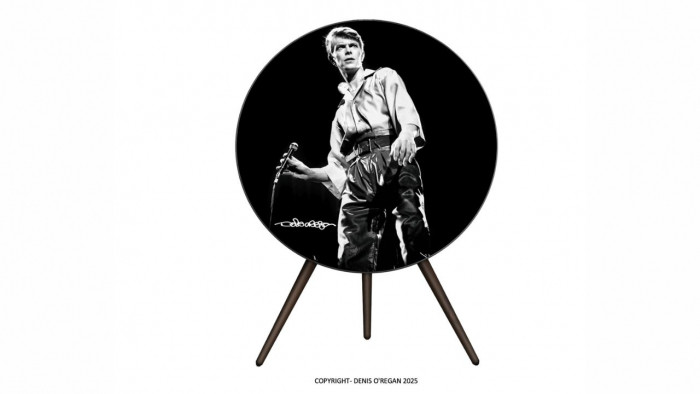Here are the books Bill Gates and Mark Zuckerberg think you should read
And they know what they're talking about


All told, it’s fair to say that Bill Gates and Mark Zuckerberg have done pretty well for themselves.
Currently the second and fourth richest men in the world, they have altered the course of human history with their achievements with Microsoft and Facebook respectively, so they’re probably people that, like it or not, you should listen to.
And ahead of this year’s World Economic Forum in Davos, Switzerland, where 2,500 world leaders, business executives and charity bosses will be getting together to discuss the theme of “creating a shared future in a fractured world”, the WEF have compiled a handy list of books recommended Bill and the Zuck, two regular attendees over the years, and two famously voracious readers.
As you’d expect, it’s a list skewed towards insightful non-fiction rather than Harry Potter, but there’s a host of fascinating insights to be gained if you get digging.
1. Ed Catmull - Creativity, Inc.: Overcoming the Unseen Forces That Stand in the Way of True Inspiration

Synopsis: “Part autobiography, part history of Pixar, part business book, Creativity, Inc. is an inspiring look at the role creativity plays in one of the most successful media businesses the world has ever seen.”
Critics say: “Pixar uses technology only as a means to an end; its films are rooted in human concerns, not computer wizardry. The same can be said of Creativity, Inc., Ed Catmull’s endearingly thoughtful explanation of how the studio he co-founded generated hits such as the Toy Story trilogy, Up and Wall-E… . [Catmull] uses Pixar’s triumphs and near-disasters to outline a system for managing people in creative businesses - one in which candid criticism is delivered sensitively, while individuality and autonomy are not strangled by a robotic corporate culture.” - Financial Times.
Zuckerberg says: “I love reading first-hand accounts about how people build great companies like Pixar and nurture innovation and creativity.”
2. Siddhartha Mukherjee - The Gene: An Intimate History

Synopsis: ”The Gene is the story of one of the most powerful and dangerous ideas in our history, from bestselling, prize-winning author Siddhartha Mukherjee.”
Critics say: “With a marriage of architectural precision and luscious narrative, an eye for both the paradoxical detail and the unsettling irony, and a genius for locating the emotional truths buried in chemical abstractions, Mukherjee leaves you feeling as though you’ve just aced a college course for which you’d been afraid to register ― and enjoyed every minute of it.” - Andrew Solomon, Washington Post.
Gates says: “Mukherjee wrote this book for a lay audience, because he knows that the new genome technologies are at the cusp of affecting us all in profound ways.”
3. Steven Pinker - The Better Angels of Our Nature: Why Violence Has Declined

Synopsis: “Wasn’t the 20th Century the most violent in history? In his extraordinary, epic book Steven Pinker shows us that this is wrong, telling the story of humanity in a completely new and unfamiliar way. From why cities make us safer to how books bring about peace, Pinker weaves together history, philosophy and science to examine why we are less likely to die at another’s hand than ever before, how it happened and what it tells us about our very natures.”
Critics say: “Brilliant, mind-altering… Everyone should read this astonishing book.” - David Runciman, The Guardian.
Gates says: “One of the most important books I’ve read - not just this year, but ever… For me, what’s most important about The Better Angels of Our Nature are its insights into how to help achieve positive outcomes. How can we encourage a less violent, more just society, particularly for the poor? Steven Pinker shows us ways we can make those positive trajectories a little more likely. That’s a contribution, not just to historical scholarship, but to the world.”
4. Sudhir Venkatesh - Gang Leader for a Day: A Rogue Sociologist Takes to the Streets

Synopsis: “Sudhir Venkatesh the young sociologist who became famous in Freakonomics (Why do drug dealers still live with their moms?) describes his time living with the gangs on the Southside of Chicago and answers another question: what’s it like to live in hell?”
Critics say: “Extraordinary… a rich, terrifying story of ‘outlaw capitalism’ and institutional corruption.” - Observer.
Zuckerberg says: “The more we all have a voice to share our perspectives, the more empathy we have for each other and the more we respect each other’s rights.”
5. Yuval Noah Harari - Sapiens: A Brief History of Humankind

Synopsis: “What makes us brilliant? What makes us deadly? What makes us Sapiens? This bestselling history of our species challenges everything we know about being human.”
Critics say: “Sweeps the cobwebs out of your brain… Radiates power and clarity, making the world strange and new” - Sunday Times.
Gates says: “Both Melinda and I read this one, and it has sparked lots of great conversations at our dinner table. Harari takes on a daunting challenge: to tell the entire history of the human race in just 400 pages. I would recommend Sapiens to anyone who’s interested in the history and future of our species.”
6. Phil Knight - Shoe Dog: A Memoir by the Creator of Nike

Synopsis: “In 1962, fresh out of business school, Phil Knight borrowed $50 from his father and created a company with a simple mission: import high-quality, low-cost athletic shoes from Japan. Selling the shoes from the boot of his Plymouth, Knight grossed $8,000 in his first year. Today, Nike’s annual sales top $30 billion… Now, for the first time, he tells his story… A memoir rich with insight, humour and hard-won wisdom, this book is also studded with lessons - about building something from scratch, overcoming adversity, and ultimately leaving your mark on the world.”
Critics say: ”Shoe Dog is, at its heart, an origin story, of both a global brand and a footwear lifer… it reads like pure adventure story, boys facing steeper and steeper challenges and finding ways through, often by the skin of their teeth. As Knight collects the misfits and oddballs who become the core of his growing company, Shoe Dog is more like The Lord of the Rings than a typical mogul memoir.” - Complex.
Gates says: “I’ve met Knight a few times over the years. He’s super nice, but he’s also quiet and difficult to get to know. Here Knight opens up in a way few CEOs are willing to do.”
7. Thomas S. Kuhn - The Structure of Scientific Revolutions

Synopsis: “With The Structure of Scientific Revolutions, Kuhn challenged long-standing linear notions of scientific progress, arguing that transformative ideas don’t arise from the day-to-day, gradual process of experimentation and data accumulation but that the revolutions in science, those breakthrough moments that disrupt accepted thinking and offer unanticipated ideas, occur outside of ‘normal science’, as he called it. Though Kuhn was writing when physics ruled the sciences, his ideas on how scientific revolutions bring order to the anomalies that amass over time in research experiments are still instructive in our biotech age.”
Critics say: “Like Thomas Kuhn, Ian Hacking has a gift for clear exposition. His introduction provides a helpful guide to some of the thornier philosophical issues… We may still admire Kuhn’s dexterity in broaching challenging ideas with a fascinating mix of examples from psychology, history, philosophy, and beyond. We need hardly agree with each of Kuhn’s propositions to enjoy - and benefit from - this classic book.” - David Kaiser, Nature.
Zuckerberg thinks: That being aware of how scientific breakthroughs are the catalysts for social progression can be a “force for social good”.
8. David Foster Wallace - String Theory

Synopsis: “Both a one-time ‘near-great junior tennis player’ and a lifelong connoisseur of the finer points of the game, David Foster Wallace wrote about tennis with the authority of an insider, the showmanship of a literary pyrotechnician, and disarming admiration of an irrepressible fan. Including his masterful profiles of Roger Federer and Tracy Austin, String Theory gathers Wallace’s five famous essays on tennis, pieces that have been hailed by sports-writers and literary critics alike as some of the greatest and most innovative magazine writing in recent memory.”
Critics say: “Wallace’s grasp of tennis was truly prodigious. The analytical powers that must have ended up hindering him as a player made him a peerless observer of the sport. He has often been described as the best tennis writer of all time, and these essays don’t disabuse that notion.” - The Guardian.
Gates says: “You don’t have to play or even watch tennis to love this book… [Wallace] wielded a pen as skillfully as Roger Federer wields a tennis racket.”
9. Daron Acemoglu and James Robinson - Why Nations Fail: The Origins of Power, Prosperity, and Poverty

Synopsis: “A provocative bestseller that explains why the world is divided into nations with wildly differing levels of prosperity.”
Critics say: “A must-read. Acemoglu and Robinson are intellectual heavyweights of the first rank… they have done you the courtesy of writing a book that while at the intellectual cutting edge is not just readable but engrossing… erudite and fascinating.” - Paul Collier, Observer.
Zuckerberg says: “This book explores the different kinds of social institutions and incentives that nations have applied to encourage prosperity, economic development and elimination of poverty. This is a good complement to our last book, Portfolios of the Poor, which focused on how people live in poverty. This one discusses why poverty exists and how to reduce it.”
10. Cixin Liu - The Three-Body Problem

Synopsis: “1967: Ye Wenjie witnesses Red Guards beat her father to death during China’s Cultural Revolution. This singular event will shape not only the rest of her life but also the future of mankind. Four decades later, Beijing police ask nanotech engineer Wang Miao to infiltrate a secretive cabal of scientists after a spate of inexplicable suicides. Wang’s investigation will lead him to a mysterious online game and immerse him in a virtual world ruled by the intractable and unpredicatable interaction of its three suns. This is the Three-Body Problem and it is the key to everything: the key to the scientists’ deaths, the key to a conspiracy that spans light-years and the key to the extinction-level threat humanity now faces.”
Critics say: “Remarkable, revelatory and not to be missed.” - Kirkus Reviews.
Zuckerberg says: “It’s a Chinese science-fiction book that has gotten so popular there’s now a Hollywood movie being made based on it. This will also be a fun break from all the economics and social science books I’ve read recently.”
11. Henry Kissinger - World Order

Synopsis: “Blending historical insight with prognostication, World Order is a meditation from one of our era’s most prominent diplomats on the 21st Century’s ultimate challenge: how to build a shared international order in a world of divergent historic perspectives, violent conflict, proliferating technology and ideological extremism.”
Critics say: “Henry Kissinger… still has remarkable influence. Reading this book, you can see why… the wit, clarity and concision of his chapters on Europe, America and jihadism are bracing.” - Economist
Zuckerberg says: “[World Order is] about foreign relations and how we can build peaceful relationships throughout the world. This is important for creating the world we all want for our children, and that’s what I’m thinking about these days.”
12. Michael Suk-Young Chwe - Rational Ritual: Culture, Coordination, and Common Knowledge

Synopsis: “Why do internet, financial service, and beer commercials dominate Super Bowl advertising? How do political ceremonies establish authority? Why does repetition characterize anthems and ritual speech? Why were circular forms favored for public festivals during the French Revolution? This book answers these questions using a single concept: common knowledge.”
Critics say: “A welcome addition… Rational Ritual can be understood and enjoyed by almost anyone interested in human interaction.” - Vincent P. Crawford, Journal of Economic Literature.
Zuckerberg says: “The book is about the concept of ‘common knowledge’ and how people process the world not only based on what we personally know, but what we know other people know and our shared knowledge as well.”
13. Gretchen Bakke - The Grid: The Fraying Wires Between Americans and Our Energy Future

Synopsis: “The Grid tells – entertainingly, perceptively – the story of what has been called ‘the largest machine in the world’: its fascinating history, its problematic present, and its potential role in a brighter, cleaner future.”
Critics say: “Hopefully, Bakke’s startling exposé revealing how electricity sloshes around the country across a precarious grid will be a wake-up call.” - Booklist.
Gates says: “This book, about our aging electrical grid, fits in one of my favorite genres: ‘Books About Mundane Stuff That Are Actually Fascinating’… I think you would also come to see why modernizing the grid is so complex and so critical for building our clean-energy future.”
14. Neal Stephenson - Seveneves

Synopsis: “The Earth was a ticking time bomb. To ensure the survival they had to look beyond its atmosphere. So they became pioneers. Five thousand years later and their progeny form seven distinct races and they must journey to an alien: Earth.”
Critics say: “He makes reading so much fun it feels like a deadly sin” - The New York Times.
Gates says: “The plot gets going in the first sentence, when the moon blows up… You might lose patience with all the information you’ll get about space flight, but I loved the technical details.”
(Main image: Rex)








